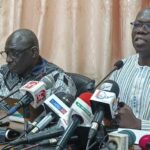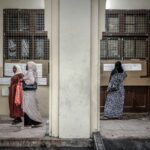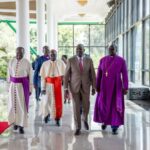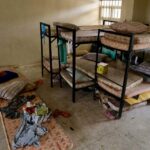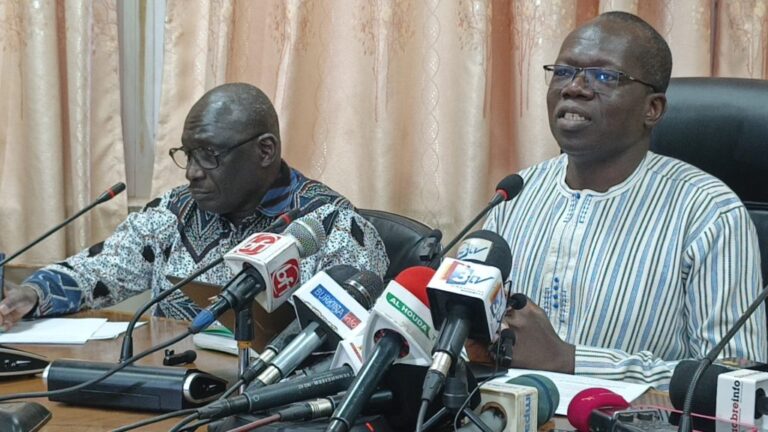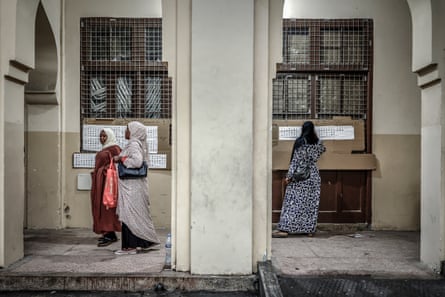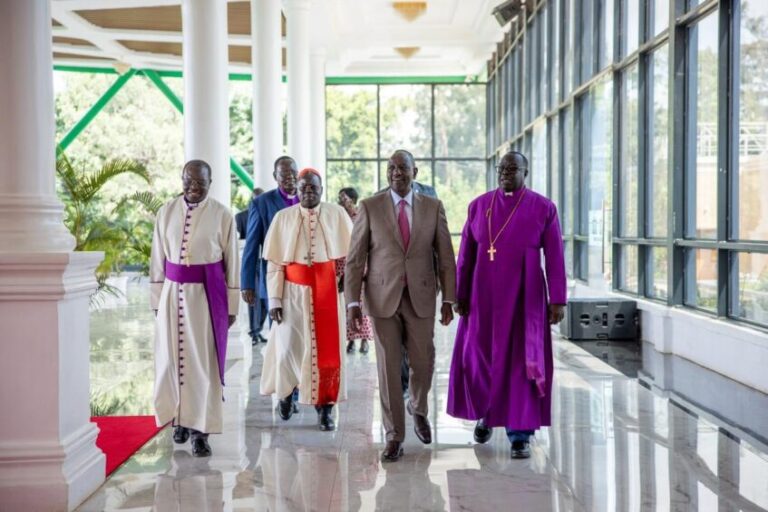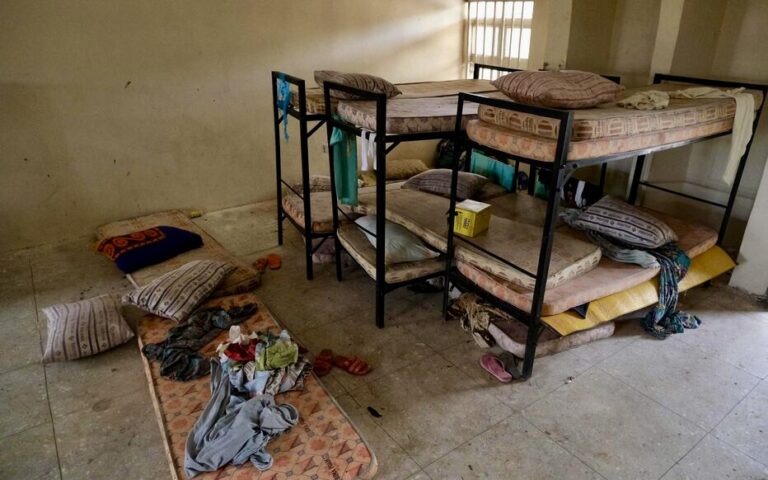
Monrovia- Finance and Development Planning Minister Augustine Ngafuan emphasized the government’s cautious approach to Liberia’s $1.2 billion draft national budget for the Fiscal Year 2026.
By Jaheim T. [email protected]
The Boakai-Koung administration on Friday, November 7, through Minister Ngafuan submitted the Draft National Budget of 1.211 billion budget to the Legislature, precisely the House Speaker Richard Nagbe Koon.
However, appearing on the Super Morning Show on ELBC, Ngafuan stated that President Boakai’s administration is committed to safeguarding the credibility and integrity of the country’s fiscal framework, even if it means resisting popular demands for significant increases in expenditure.
He highlighted that the administration is meticulous in its budgetary decisions to avoid the pitfalls of fiscal recklessness, which could undermine public confidence.
“We could simply increase the size of the budget and move on,” he said. “However, What we would have done to the budget — we would injure the credibility of this budget. When we speak about the budget, people may no longer believe us.”
Ngafuan explained that the government’s approach is grounded in fiscal discipline and transparency.
“The way you treat this budget with this level of sacredness, that will evaporate. So, emphasizing that maintaining trust in the nation’s budgeting process is a cornerstone of Boakai’s economic recovery agenda.
“We treat this budget with this level of sacredness, and if that is lost, it will evaporate. Therefore, that’s why we are meticulous,” Ngafuan noted, stressing that maintaining trust in the budgeting process is crucial for Boakai’s economic recovery agenda.
He acknowledged that the budgeting process requires ongoing engagement with lawmakers but insisted that the Ministry of Finance focuses on a balanced and realistic fiscal plan.
“Even with the legislators, there will be back-and-forth discussions,” he clarified. “But I always remind them: we can find solutions together; let’s discuss and debate. Ultimately, we need to ensure we raise sufficient revenue because these expectations will affect expenditure.”
The Minister cautioned against creating unrealistic spending expectations without corresponding revenue generation. “Once you enter the budget process, some people assume that money is readily available, so they just request it,” he said. “However, we must secure revenue before we can allocate funds.”
Grounded in the ARREST Agenda
Ngafuan reaffirmed that the 2026 Budget aligns with the government’s ARREST Agenda for Inclusive Development, which emphasizes roads, energy, education, health, agriculture, and sanitation.
“In crafting the budget, the first aspect we considered was anchoring it around the National Development Plan,” he noted. “The development plan costs $8.34 billion, and the government’s contributions toward realizing that plan have been increasing.”
He revealed that domestic’ revenue now constitutes 94% of Liberia’s national budget, while external or donor funding has diminished to only 6%, reflecting a growing sense of fiscal independence.
“Previously, donor support accounted for nearly 30% of the budget,” he stated. “Now it is just 6%, and we intend to continue on this path — generating funds domestically for the benefit of the Liberian people and prioritizing state needs.”
Significant Allocations for Roads, Energy, and Counties
Minister Ngafuan highlighted key allocations, revealing that the road and energy sectors remain top priorities, each receiving $50 million in the 2026 fiscal plan as part of a special one-time investment from ArcelorMittal.
“In addition to the regular $60 million we allocate for road expansion in the Public Works budget, we have given the road sector an extra $50 million. The allocations are $50 million for roads and $50 million for energy,” he stated.
He further added that counties within the mineral catchment areas—specifically Nimba, Bong, and Bomi—will receive a significant financial boost of about $14 million in addition to their regular development funds.
“We’ve introduced a County Development Agenda (CDA) funding program,” he explained. “All counties will receive CDA funding along with their normal County and Social Development Funds, resulting in over $30 million being directed to the counties within this budget.”
Ngafuan also noted that the Liberia Electricity Corporation (LEC) will utilize its $50 million allocation from the ArcelorMittal special one-time signature bonus to expand the “smart metering project,” aimed at reducing commercial losses from electricity theft.
“Currently, for every dollar LEC receives, it only collects about 53 cents. With the smart metering project, LEC could collect almost 95 cents for every dollar, leading to increased stability and reduced costs in the long run.”
Support for Education, Judiciary, and Health
In the education sector, the University of Liberia is set to receive an additional $6 million for rehabilitation and infrastructure enhancements, while the judiciary’s budget has been increased by $8 million to support the construction of new courts and the digitization of judicial records.
“The Supreme Court is one of the main beneficiaries,” he said. “There are also funds allocated for health facilities across the counties, and other institutions.”
Ngafuan further confirmed that the government will take on the salary obligations of staff at ELWA Hospital, a private health institution that has faced financial difficulties.
He also announced that preparations are underway to dedicate the long-delayed Redemption Hospital by early 2026.
“We cannot allow hospitals like ELWA Hospital to close because they cannot pay their staff,” he stated. “So beginning next year, the government will take over their salary obligations. The new Redemption Hospital project, which started in 2016, is now at the point of completion.”
Managing Debt and Recurrent Costs
Addressing concerns about the large portion of the budget allocated to salaries and debt service, Ngafuan revealed that while 77% of the budget is dedicated to recurrent costs, there has been a significant increase in Public Sector Investment Projects (PSIP)—from $107 million to $281 million—to ensure tangible development impacts.
“$281 million is earmarked for projects—just for projects,” he emphasized. “This includes funding for two major roads and the government’s financing obligations the for yellow machines used in county road works.”
Ngafuan also disclosed that Liberia’s total debt stock has now reached $2.7 billion, which includes $1.08 billion in domestic debt, with $230 million allocated for debt servicing in the 2026 budget.
“According to the PFM law, the first claim on revenue is debt service, meaning that when you owe money, you must pay,” he stated. “That is essential for the government’s credibility.”
He clarified that while an audit of domestic debt conducted by the General Auditing Commission (GAC) disqualified several illegitimate claims, the overall debt stock still increased due to new validated obligations.
“Those claims that were validated were added to the debt stock,” Ngafuan explained. “So, while our debt stock is increasing, it would have increased even more had the Auditor General not invalidated some of those claims.”
A Budget of “Sacred Credibility
Minister Ngafuan reiterated one central conversation, credibility over popularity. “We are not just throwing numbers around to impress anyone,” he concluded. “We are building a credible budget that Liberians can trust—one that is deliberate, realistic, and capable of delivering real development.”
We are not just throwing numbers in the air to impress people,” he concluded. “We are building a credible budget that Liberians can trust — one that is deliberate, realistic, and capable of delivering real development.”

